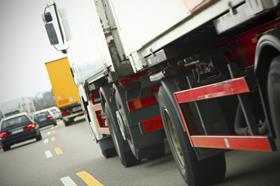
The logistics industry must be at the forefront of Brexit negotiations on trade and customs arrangements, the industry trade body has said.
The Freight Trade Association (FTA) was responding to a new government report published today (15 August) that states the UK could ask Brussels to establish a “temporary customs union” after it leaves the EU.
During this period, the UK would also expect to be able to negotiate its own international trade deals, something which cannot be done as an EU customs union member. Once this time expires, the government will hope to establish either a “highly streamlined” border with the EU or a new “partnership” with no customs border at all.
The FTA has hailed the report as a step in the right direction, but said it has compiled its own agenda that would help freight businesses and distributors continue trading during and after Brexit.
The body’s Brexit recommendations include:
- Customs systems and procedures capable of handling up to 300 million additional annual declarations
- Learning curve – time to adapt to new systems and customs declarations for UK-EU trade
- Equivalent procedures in all other European customs administrations to avoid intra-EU border delays
- Avoid vehicle checks at ports and airports where there is no time and no room – advance declarations and clearance systems can eliminate the need for checks
- No cliff-edge in trade procedures – businesses will require transitional arrangements to ensure international trade can continue, especially if negotiations break down at short notice and the UK exits the customs union without a deal
“The government has recognised that it cannot drive the British economy off the cliff edge of Brexit,” said FTA deputy chief executive James Hookham. “FTA is keen to play its part in helping to develop efficient customs procedures post-Brexit, which will keep trade flowing freely, and urges the government to include representatives of the sector, with specialist knowledge, at the negotiating table to help reach the best possible deal for Britain.”
The logistics industry has “clearly identified its needs” if trade is to continue in a frictionless manner with the EU and the rest of the world, Hookham continued, adding that “the government owes it to British trade and industry to work with us to ensure that these arrangements can be introduced as part of the final Brexit deal.”
“No trade deal will succeed unless freight and logistics requirements have been factored into any discussions between the EU and the UK,” he added.



